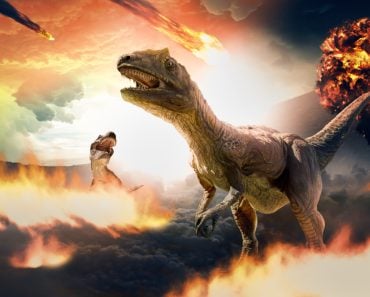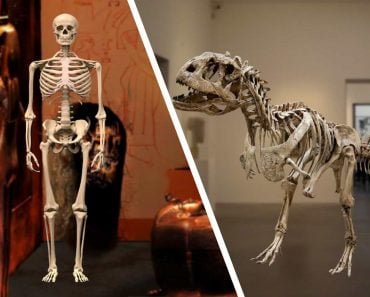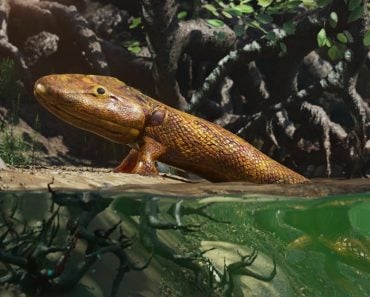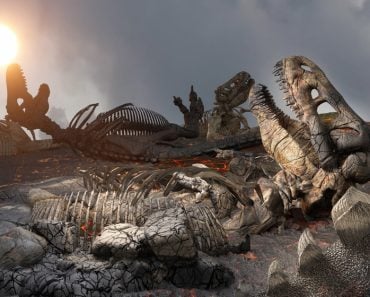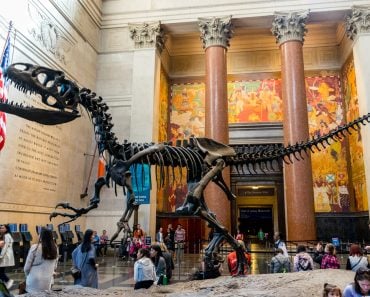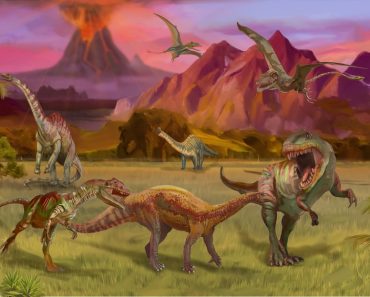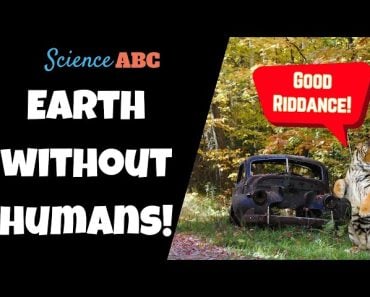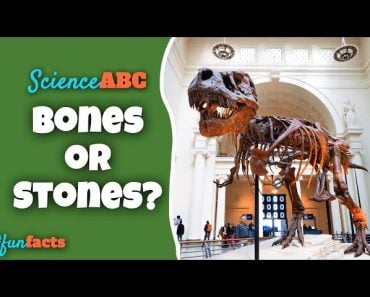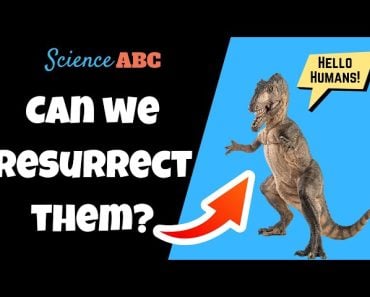Just as fossils of the past told us stories about life on the early Earth, our fossils found in the future will tell the stories of us. This may reveal the species that have gone extinct because of us, loss of biodiversity, and much more.
We’re all going to die, and in millions of years we may become fossils. Us humans, and our furry friends, could one day be the subject of study by future paleontologists.
But what kind of story will our fossils tell about us and our planet?
Well, it’s quite possible that the fossil record of today will reveal a lot about the impact that human activities have had on the environment.
The good thing is that this “future generation” will be able to learn from our mistakes and change things for the better. We should take action now to care for our planet, just as a small seed can grow into a beautiful plant, provided it has proper care and attention.
For now, let’s explore what mysteries future paleontologists may dig up from our lives today!
Recommended Video for you:
More Extinct Species
Today’s fossils will tell the story of a heartbreaking loss—the extinction of countless species as a result of human activity.
Future paleontologists may discover the fossils of exotic animals, similar to a treasured old photo album, providing a glimpse into the diverse world that once existed.
Passenger pigeons, Tasmanian tigers, and dodo birds have all gone extinct as a result of human activity. A few newer members who are not extinct, but may be on their way out, will also be added to the list. These fossils act as a time capsule of our past mistakes, reminding future generations to prioritize conservation efforts.
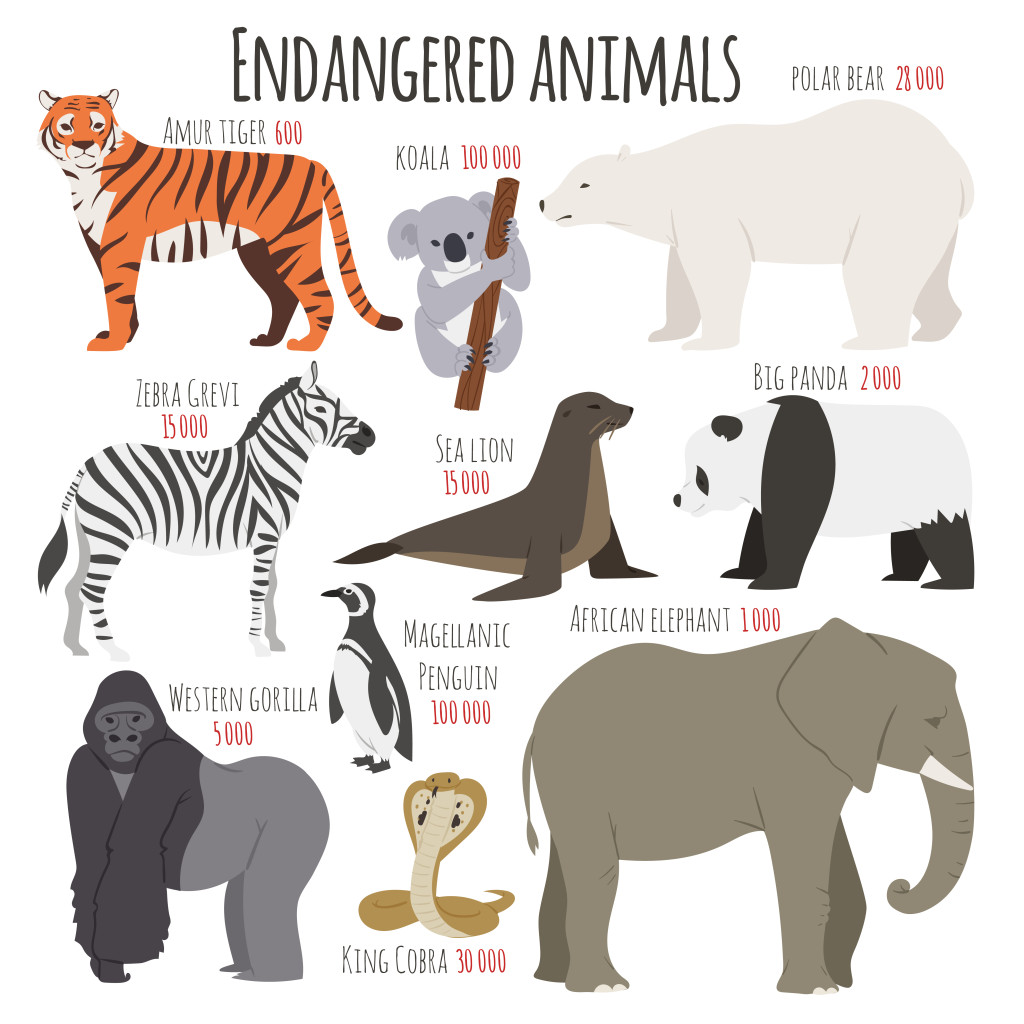
Loss Of Biodiversity And Species Diversity
Today’s fossil record may also tell a story of biodiversity loss and a decline in species diversity. Global biodiversity has declined significantly due to habitat loss, overharvesting, and the introduction of invasive species. Loss of biodiversity is analogous to losing puzzle pieces, but each piece is critical for the overall picture to be complete. Just as different crayon colors are required to create a beautiful picture, diverse species are required to maintain a beautiful and healthy planet.
Because we bury our loved ones and pets, the chances of finding fossils of humans and their pets are likely to increase, as this means of “disposal” provides a more stable environment for the preservation of fossils.
These fossils may provide a unique perspective on contemporary daily life and cultural practices, as well as a reminder of our shared history.
Fewer Marine Fossils
Usually, fossils are better preserved in oceans, as they get buried almost immediately by sediments. However, it may not be easy to find oceanic fossils in the future, akin to trying to find a needle in a haystack, as the increasing acidity of the ocean may affect the preservation of fossils.
The acidity of the oceans has increased significantly as a result of carbon dioxide emissions from the combustion of fossil fuels, causing significant harm to marine life. It appears that the oceans are becoming hostile environments, and the fossils that do survive will tell the story of how we have negatively impacted the seas.
Paleontologists may discover that the oceans are no longer thriving ecosystems. Instead, they may discover a world of scarcity and decay, where species have become extinct and the oceans have grown polluted.
However, there is still hope. We can learn from our mistakes and take action to prevent further harm by studying the fossil record. We can make the oceans more hospitable for marine life and ensure that future fossils tell a different story—one of restoration and renewal.
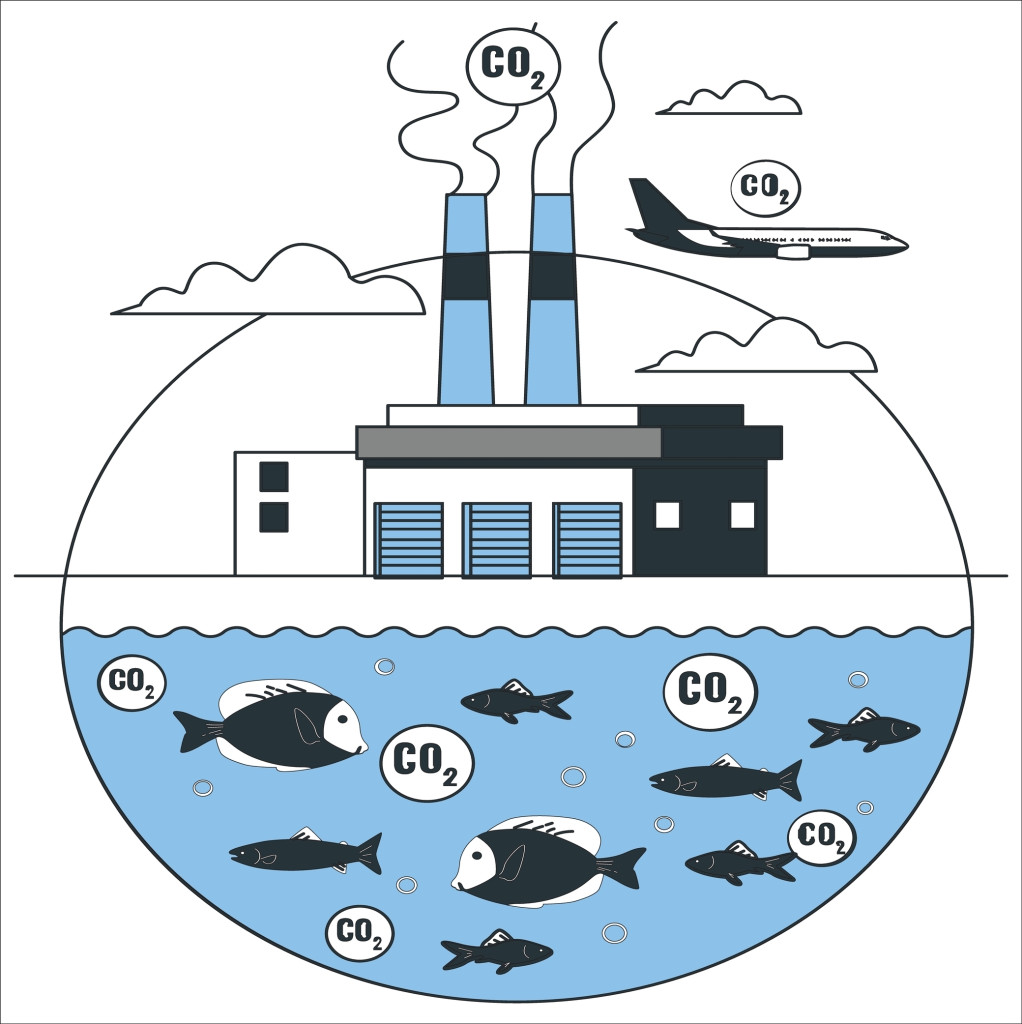
Increased Nitrogen Concentration
It is well known that the unusual concentration of an element, Iridium, in the rock layers, marked the end of the dinosaur era, indicating that an extraterrestrial object caused their extinction. Similarly, today’s fossils may reflect our present-day conditions.
For example, increased nitrogen levels in the soil due to synthetic fertilizer production and fossil fuel burning could be evident in future fossils. Nitrogen is a critical nutrient for plant growth, but excessive amounts can lead to environmental problems, such as eutrophication, where the excessive growth of algae reduces oxygen levels in water bodies, causing harm to aquatic life.
The evidence of increased nitrogen levels and the drastic increase in CO2 and greenhouse gases will highlight humanity’s contribution to significant changes in the environment. It is crucial to acknowledge our role in shaping the planet’s future and take measures immediately to mitigate negative effects.
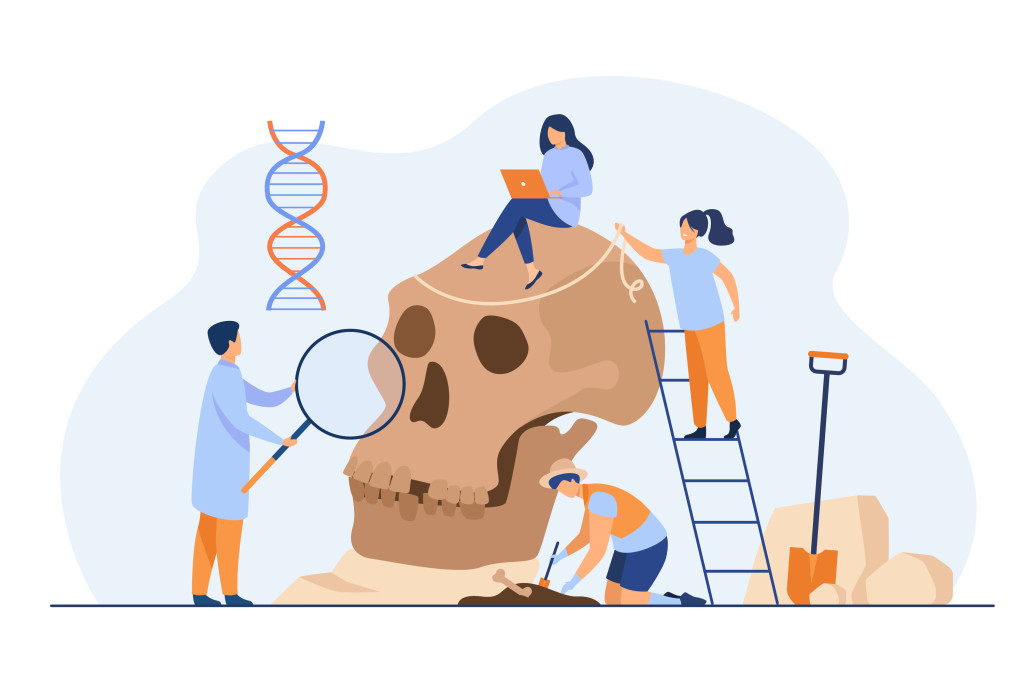
Conclusion
Today’s fossil record will bear witness to the impact of human activity on our planet, highlighting our successes, failures, and everything in between. From the extinction of exotic species to the loss of biodiversity, today’s fossil record will be a valuable resource for future generations, namely to learn from our mistakes.
Paleontologists of the future may study our remains to understand how our actions shaped the planet, just as archaeologists today can unearth and study the remains of ancient civilizations.
The lessons learned from studying today’s fossils could help future generations make better decisions and take action to mitigate the negative effects of human activity on the broader ecosystems of the planet. By doing so, they can contribute to a more sustainable future for many generations to come.
References (click to expand)
- Kyne, P. M., & Adams, V. M. (2016, May 3). Extinct flagships: linking extinct and threatened species. Oryx. Cambridge University Press (CUP).
- H Moshinsky. The Future of Fossils: The Evolution of Paleontological .... Western Oregon University
- Officer, C. B., & Drake, C. L. (1983, March 25). The Cretaceous-Tertiary Transition. Science. American Association for the Advancement of Science (AAAS).
- Mulvaney, R. L., Khan, S. A., & Ellsworth, T. R. (2009, November). Synthetic Nitrogen Fertilizers Deplete Soil Nitrogen: A Global Dilemma for Sustainable Cereal Production. Journal of Environmental Quality. Wiley.
- Livestock, Pets and People Will Dominate Future Fossils.

